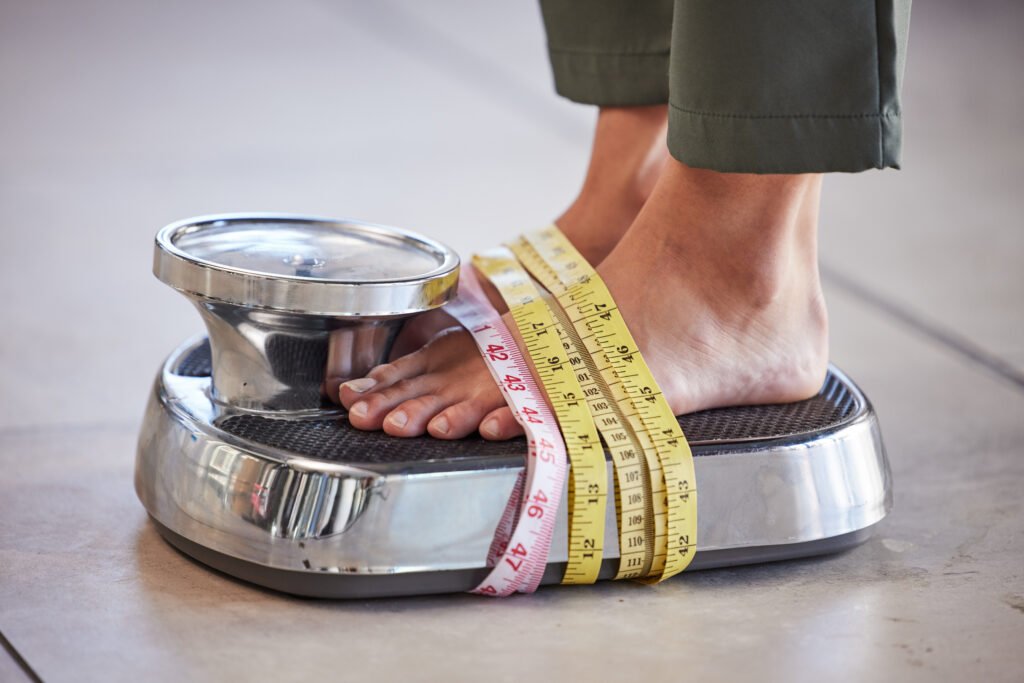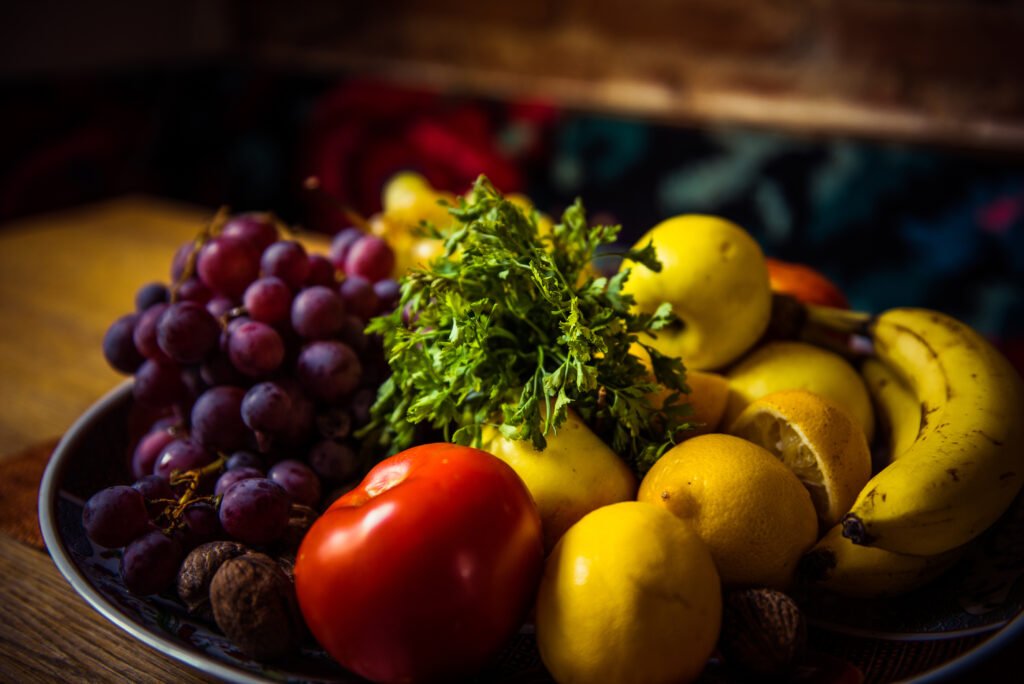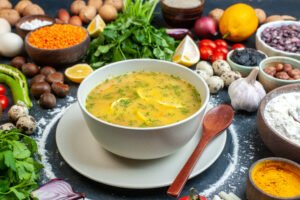Is there a link between gastritis and unintentional weight loss?

Gastritis is a condition that affects individuals differently, with symptoms ranging from mild discomfort to severe pain.
Unfortunately, many people fail to recognize the potential link between gastritis and unintentional weight loss, often dismissing such symptoms as insignificant.
However, understanding this connection is crucial as gastritis can indeed lead to a loss of appetite and subsequent weight loss, even in children.
The extent of weight loss caused by gastritis can vary, but it’s important to be aware that significant and unexplained weight loss could be a red flag for underlying health issues, including gastritis.
Certain foods can exacerbate gastritis symptoms, so it’s wise to avoid spicy, acidic, and fatty foods which can aggravate the stomach lining.
Wondering if your weight loss is caused by gastritis?
Look out for symptoms like abdominal pain, nausea, and vomiting, which often accompany gastritis-related weight loss. If you suspect gastritis is the culprit, seeking medical advice promptly is essential.
Understanding the cause of gastritis and addressing it swiftly can help not only alleviate symptoms but also prevent further complications like malnutrition.
Adopting a gastritis meal plan and dietary changes, along with incorporating gastritis supplements into your routine, can aid in managing symptoms and promoting healing.
By taking proactive steps towards better nutrition and lifestyle habits, individuals can regain control of their health and well-being amidst the challenges of gastritis-induced weight loss.
Can Gastritis Cause Weight Loss?

Yes, gastritis can cause weight loss. Gastritis is the inflammation of the stomach lining, which can lead to a variety of symptoms including loss of appetite, nausea, and vomiting.
When individuals experience these symptoms, they may consume less food, resulting in unintentional weight loss over time.
Additionally, the inflammation and discomfort associated with gastritis can make it difficult for individuals to tolerate certain foods, leading to further reduction in calorie intake.
Furthermore, severe or chronic gastritis can interfere with the body’s ability to absorb nutrients from food, which can contribute to weight loss and malnutrition.
In some cases, gastritis-related weight loss can be significant and may require medical intervention to address the underlying inflammation and improve nutritional intake.
In summary, here is how gastritis can be a contributing factor to weight loss:
- Loss of Appetite
One of the common symptoms of gastritis is nausea, vomiting, and general stomach discomfort. This can make it difficult or unpleasant to eat, leading to reduced calorie intake and potential weight loss.
- Nutrient Malabsorption
In severe cases, gastritis can damage the stomach lining, making it harder for your body to absorb essential nutrients from food. This can lead to deficiencies and unintentional weight loss despite eating normally.
How Can I Tell If My Weight Loss Is From Gastritis?
If you’re experiencing weight loss and suspect it may be due to gastritis, there are several signs and symptoms to look out for:
- Gastrointestinal Symptoms
Gastritis often presents with symptoms such as abdominal pain, nausea, vomiting, indigestion, and a feeling of fullness after eating small amounts of food.
If you’re experiencing these symptoms along with weight loss, it could be indicative of gastritis.
- Loss of Appetite
Gastritis can lead to a reduced appetite or aversion to food due to discomfort in the stomach.
If you find yourself eating less than usual or feeling less hungry, despite no intentional changes in your diet or lifestyle, it could be related to gastritis-induced weight loss.
- Changes in Bowel Habits
Gastritis may also cause changes in bowel habits, such as diarrhea or constipation, which can further impact your nutritional intake and contribute to weight loss.
- Blood in Stool or Vomit
In some cases, gastritis can lead to bleeding in the stomach lining, which may result in the presence of blood in vomit or stool. If you notice any signs of gastrointestinal bleeding along with weight loss, it’s essential to seek medical attention immediately.
- Chronic Symptoms
If you’ve been experiencing ongoing symptoms such as abdominal pain, nausea, and weight loss for an extended period, it’s important to consult a healthcare professional for proper evaluation and diagnosis.
It’s crucial to remember that while these symptoms can indicate gastritis, they can also be associated with other medical conditions.
Therefore, if you suspect that your weight loss may be due to gastritis, it’s essential to seek medical advice for accurate diagnosis and appropriate treatment.
Your healthcare provider can perform tests such as endoscopy, blood tests, or imaging studies to determine the underlying cause of your symptoms and develop a personalized treatment plan to address them effectively.
What Are Other Symptoms Of Gastritis?
While the more commonly recognized symptoms of gastritis include abdominal pain, nausea, and vomiting, there are several lesser-known signs that could indicate gastritis-related weight loss.
Here are other less known symptoms to be aware of:
- Bloating
Gastritis can lead to excessive gas production and bloating, which may contribute to a feeling of fullness and decreased appetite, ultimately leading to unintentional weight loss.

- Heartburn
Chronic heartburn or acid reflux, especially after meals, may be a less recognized symptom of gastritis. Persistent inflammation in the stomach lining can result in increased acidity, causing discomfort and potentially affecting your eating habits.
- Fatigue
Gastritis can disrupt the normal digestion and absorption of nutrients, leading to deficiencies in essential vitamins and minerals. This nutritional imbalance can result in fatigue and weakness, contributing to overall weight loss.
- Changes in Taste
Some individuals with gastritis may experience alterations in taste perception, such as a metallic or bitter taste in the mouth.
These changes can impact appetite and food preferences, leading to reduced food intake and subsequent weight loss.
- Bad Breath
Chronic gastritis can result in the overgrowth of bacteria in the stomach, leading to halitosis or persistent bad breath.
Unpleasant breath odor, especially when accompanied by other gastrointestinal symptoms, could indicate underlying gastric inflammation contributing to weight loss.
- Feeling Full Quickly
Gastritis can cause early satiety, where you feel full soon after starting a meal. This sensation may lead to decreased food consumption and subsequent weight loss over time.
- Iron Deficiency Anemia
Chronic gastritis can impair the stomach’s ability to absorb iron from food, leading to iron deficiency anemia.
Symptoms of anemia include fatigue, weakness, and pale skin, which can contribute to weight loss and overall decline in health.
How Much Weight Can You Lose From Gastritis?
The amount of weight lost due to gastritis can vary widely depending on factors such as the severity of the inflammation, individual physiology, dietary habits, and overall health status.
In mild cases of gastritis, weight loss may be minimal or nonexistent, while more severe or chronic cases can lead to more significant weight loss over time.
In some instances, gastritis-related weight loss may be gradual and go unnoticed until it becomes more pronounced.
Individuals with gastritis may experience a loss of appetite, nausea, vomiting, and discomfort after eating, all of which can contribute to decreased calorie intake and subsequent weight loss.
Moreover, gastritis can interfere with the body’s ability to absorb essential nutrients from food, leading to malnutrition and further exacerbating weight loss.
Severe cases of gastritis may also involve bleeding in the stomach lining, resulting in additional weight loss due to blood loss and decreased hemoglobin levels.
Some individuals may maintain their weight or even gain weight despite having gastritis, depending on various factors such as dietary adjustments and treatment efficacy.
In essence, it’s difficult to pinpoint an exact amount of weight loss solely attributable to gastritis.
Here’s why:
- Individual Variation
Gastritis severity and its impact on weight loss can vary greatly from person to person. Factors like overall health, eating habits before gastritis, and duration of symptoms all play a role.
- Indirect Weight Loss
Gastritis often doesn’t cause direct weight loss but can contribute by affecting appetite or nutrient absorption. Reduced calorie intake or difficulty absorbing nutrients can lead to weight loss over time.
- Other Underlying Conditions
Weight loss can have multiple causes. If you’re experiencing gastritis and weight loss, it’s important to rule out other potential medical conditions impacting your weight.
Here are some things to consider:
- Severity of Gastritis: Severe cases with significant nausea, vomiting, and pain might lead to more significant weight loss due to reduced calorie intake.
- Duration of Symptoms: Chronic gastritis, with persistent symptoms over a longer period, can lead to more substantial weight loss compared to a short-lived case of acute gastritis.
- Pre-existing Weight and Eating Habits: Someone with a lower baseline weight or already limited calorie intake might be more susceptible to weight loss with gastritis compared to someone with a higher baseline weight or healthy eating habits.
While there’s no one-size-fits-all answer, here’s a general range to consider:
- Mild Weight Loss: In some cases, gastritis might cause a few pounds (1-5 kg) of weight loss, especially if symptoms are mild and temporary.
- Significant Weight Loss: In severe or chronic cases, weight loss exceeding 10 pounds (4.5 kg) is possible, particularly if it affects your ability to eat or absorb nutrients.
Key Points:
- Weight loss isn’t a universal symptom of gastritis. Not everyone with gastritis experiences weight loss. Some might maintain weight or even lose none at all.
- The amount of weight loss varies greatly depending on individual circumstances.
- Focus on Treatment: The primary goal is to treat gastritis and manage symptoms. Weight gain (if needed) becomes easier once the underlying condition improves.
By addressing gastritis and managing your symptoms, you can improve your overall health and potentially regain weight in a healthy way if necessary.
Can I Gain Weight Back After Losing Weight From Gastritis?
Yes, it is possible to gain weight back after losing weight due to gastritis. Once the underlying cause of gastritis is identified and effectively treated, individuals can often resume a normal diet and regain lost weight over time.
Recovery from gastritis typically involves a combination of dietary modifications, lifestyle changes, and medical treatment to reduce inflammation and alleviate symptoms.
With proper management, individuals may find their appetite returning and their ability to tolerate a wider variety of foods improving, which can facilitate weight gain.
Here are a few steps to help regain weight after experiencing weight loss due to gastritis:
- Follow a Gastritis-Friendly Diet
Initially, focus on consuming easily digestible foods that are gentle on the stomach, such as bland carbohydrates, lean proteins, cooked vegetables, and low-acid fruits.
Avoid spicy, acidic, fatty, and irritating foods that can exacerbate gastritis symptoms.
- Gradually Increase Caloric Intake
Begin by gradually increasing your calorie intake by adding small portions of nutrient-rich foods to your meals and snacks.
Incorporate foods high in protein, healthy fats, and complex carbohydrates to support weight gain and muscle recovery.
- Eat Regularly
Aim to eat small, frequent meals throughout the day rather than large meals to prevent overwhelming your stomach and minimize discomfort. Eating at regular intervals can help stabilize blood sugar levels and stimulate appetite.
- Stay Hydrated
Proper hydration is essential for overall health and digestion. Drink plenty of water throughout the day to stay hydrated and support optimal digestion, which can aid in nutrient absorption and weight gain.
- Monitor Symptoms
Pay attention to how your body responds to different foods and adjust your diet accordingly. If certain foods or beverages trigger gastritis symptoms, consider avoiding or limiting them to prevent further discomfort.
- Seek Professional Guidance
Consult a healthcare professional or registered dietitian for personalized dietary recommendations and guidance on weight management strategies tailored to your individual needs and preferences.
By following these steps and adopting a balanced and nutritious diet, individuals can gradually regain lost weight and promote overall health and well-being after experiencing weight loss due to gastritis.
It’s essential to be patient and listen to your body’s signals while making dietary adjustments to ensure a gradual and sustainable approach to weight gain.
How Can I Eat To Manage Gastritis And Maintain Weight?

Managing gastritis while maintaining weight involves adopting a diet that minimizes irritation to the stomach lining while providing adequate nutrition.
Here are some key dietary tips to follow:
- Focus on Gentle Foods
Choose foods that are easy to digest and gentle on the stomach, such as cooked vegetables, fruits without high acidity (like bananas and apples), lean proteins (such as chicken, turkey, fish, and tofu), and whole grains (like rice, oats, and quinoa).
- Avoid Trigger Foods
Steer clear of foods that can exacerbate gastritis symptoms, such as spicy foods, acidic foods and beverages (like citrus fruits, tomatoes, and coffee), fatty foods, fried foods, carbonated drinks, and alcohol.
- Eat Smaller, Frequent Meals
Opt for smaller, more frequent meals throughout the day rather than three large meals. Eating smaller portions can help prevent overwhelming the stomach and reduce the risk of discomfort or irritation.
- Chew Thoroughly
Take your time to chew your food thoroughly before swallowing. This can aid in digestion and reduce the workload on your stomach.
- Stay Hydrated
Drink plenty of water throughout the day to stay hydrated and support digestion. Avoid drinking large amounts of fluids during meals, as this can dilute stomach acid and impair digestion.
- Include Probiotic Foods
Probiotic-rich foods, such as yogurt, kefir, sauerkraut, and kombucha, may help promote a healthy balance of gut bacteria and support digestive health.
- Manage Stress
Stress can exacerbate gastritis symptoms, so practice stress-reducing techniques such as deep breathing, meditation, yoga, or spending time in nature.
- Monitor Symptoms
Pay attention to how your body responds to different foods and adjust your diet accordingly. Keep a food diary to track your symptoms and identify any triggers that may worsen gastritis.
Is There A Special Diet For Gastritis And Weight Loss?
Yes, there are dietary guidelines specifically tailored for individuals with gastritis who are also looking to manage their weight.
These guidelines focus on choosing foods that are gentle on the stomach, reduce inflammation, and support healthy weight management.
Here are common meals and food replacements for people with gastritis and weight loss goals:
Breakfast
Instead of: Spicy breakfast burrito loaded with salsa and hot sauce, which can irritate the stomach lining.
Try: Plain oatmeal made with water or almond milk, topped with sliced banana, a sprinkle of cinnamon, and a drizzle of honey for natural sweetness.
You can also enjoy a yogurt parfait with low-acid fruits like berries or peaches, and a handful of granola for added crunch.
Lunch
Instead of: Greasy cheeseburger and fries, which can be heavy on the stomach and may trigger inflammation.
Try: Grilled chicken or tofu salad with a variety of mixed greens, sliced avocado, cucumber, cherry tomatoes, and a light vinaigrette dressing made with olive oil and lemon juice.
Alternatively, enjoy a quinoa and vegetable stir-fry with colorful veggies such as bell peppers, broccoli, and snap peas, along with lean protein sources like shrimp, tempeh, or edamame.
Snacks
Instead of: Spicy chips or salsa, which can be high in fat and sodium and may exacerbate gastritis symptoms.
Try: Rice cakes topped with almond butter or natural peanut butter for a satisfying snack that’s gentle on the stomach.
You can also enjoy crunchy carrot sticks paired with creamy hummus, or a small handful of unsalted nuts and seeds such as almonds, walnuts, or pumpkin seeds for a nutritious boost of protein and healthy fats.
Dinner
Instead of: Heavy pasta dishes with creamy sauces, which can be rich and acidic, potentially triggering discomfort.
Try: Whole grain pasta tossed with a light tomato-based sauce made from fresh tomatoes, garlic, basil, and a touch of olive oil.
Pair it with grilled fish or tofu seasoned with herbs and lemon juice, served alongside steamed or roasted vegetables such as asparagus, zucchini, and cauliflower.
Alternatively, enjoy a hearty vegetable and lentil soup made with low-sodium vegetable broth and served with a side of whole grain bread for added fiber and satiety.
Beverages
Instead of: Carbonated drinks, alcohol, and coffee, which can all contribute to stomach irritation and inflammation.
Try: Herbal teas such as chamomile, ginger, or peppermint tea, which are soothing to the digestive system and can help alleviate symptoms of gastritis.
You can also infuse water with slices of cucumber, lemon, or mint for a refreshing and hydrating beverage without added sugars or acidity.
Additionally, opt for diluted fruit juices made from low-acid fruits like apples, pears, or berries for a naturally sweet and nutritious option.
Desserts
Instead of: Rich chocolate cake or ice cream, which can be high in sugar and fat and may aggravate gastritis symptoms.
Try: Fresh fruit salad made with a variety of seasonal fruits such as strawberries, blueberries, kiwi, and pineapple, served with a dollop of Greek yogurt or a drizzle of honey for added sweetness.
You can also enjoy a small piece of dark chocolate (70% cocoa or higher) for a satisfying treat that’s lower in sugar and fat.
Alternatively, make your own fruit sorbet using frozen berries blended with a splash of coconut milk for a creamy and refreshing dessert option.
Food Replacements
- Replace spicy seasonings like chili powder, cayenne pepper, and hot sauce with milder herbs and spices such as basil, oregano, parsley, and turmeric, which have anti-inflammatory properties.
- Choose lean proteins such as skinless chicken breast, turkey, fish (like salmon or trout), tofu, tempeh, or legumes (such as lentils, chickpeas, or black beans) as alternatives to fatty meats.
- Opt for whole grains like brown rice, quinoa, barley, or oats instead of refined grains like white rice and white bread, which provide more fiber and nutrients.
- Incorporate low-acid fruits like bananas, melons (such as honeydew or cantaloupe), and apples into your diet instead of acidic fruits like oranges, grapefruits, and tomatoes, which can exacerbate gastritis symptoms.
- Use plant-based oils like olive oil, avocado oil, or coconut oil for cooking and dressing salads instead of butter, margarine, or other saturated fats.
By making these food swaps and adjustments, you can create a gastritis-friendly meal plan that supports both your digestive health and weight management goals.
Remember to listen to your body and choose foods that make you feel nourished and satisfied without triggering discomfort or inflammation.
Gastritis and Weight Loss FAQs: What You Need to Know
- How can I treat gastritis and stop weight loss?
To treat gastritis and prevent further weight loss, it’s essential to adopt a gastritis-friendly diet that avoids trigger foods such as spicy, fatty, and acidic items.
Focus on consuming gentle foods like cooked vegetables, lean proteins, and whole grains.
Additionally, managing stress, staying hydrated, and eating smaller, more frequent meals can help alleviate symptoms and promote weight stability.
- What medications help with gastritis and weight loss?
Medications such as proton pump inhibitors (PPIs) and H2 blockers can help reduce stomach acid production and alleviate gastritis symptoms.
Additionally, antacids may provide temporary relief from discomfort.
- Are there home remedies for gastritis and weight loss?
Some home remedies for gastritis and weight loss include consuming ginger tea, chamomile tea, or licorice root tea to soothe the stomach and reduce inflammation.
Additionally, incorporating probiotic-rich foods like yogurt and fermented vegetables into your diet can support gut health.
- How long does it take to recover from gastritis and weight loss?
The recovery time for gastritis and weight loss can vary depending on the severity of the condition and individual factors.
With proper treatment, dietary adjustments, and lifestyle modifications, many people experience improvement in symptoms within a few weeks to months.
- Can gastritis be cured permanently?
While gastritis can often be managed effectively with lifestyle changes and medication, it may not be cured permanently in all cases.
Chronic gastritis, in particular, may require ongoing treatment and monitoring to control symptoms and prevent complications.
However, following a gastritis-friendly diet, managing stress, and avoiding triggers can help minimize symptoms and improve quality of life.
- Can weight loss from gastritis lead to other health problems?
Yes, weight loss from gastritis can potentially lead to other health problems such as malnutrition, muscle loss, weakness, and fatigue.
It’s essential to address gastritis-related weight loss promptly through proper nutrition, hydration, and medical treatment to prevent further complications.
- When should I see a doctor about gastritis and weight loss?
You should see a doctor if you experience persistent symptoms of gastritis, including abdominal pain, nausea, vomiting, and unintended weight loss.
- Is there a link between gastritis and malnutrition?
Yes, gastritis can lead to malnutrition, as it may interfere with the body’s ability to absorb essential nutrients from food.
Chronic inflammation in the stomach lining can impair nutrient absorption, leading to deficiencies in vitamins and minerals.
It’s crucial to address gastritis-related malnutrition through dietary modifications, supplementation, and medical treatment as needed.
- Can gastritis cause weight loss and fatigue?
Yes, gastritis can cause unintended weight loss and fatigue, especially in cases of chronic or severe inflammation.
Discomfort, nausea, and reduced appetite associated with gastritis can contribute to decreased food intake, leading to weight loss over time.
Additionally, nutrient deficiencies resulting from gastritis-related malnutrition can cause fatigue and weakness.
- How can I prevent gastritis and weight loss?
To prevent gastritis and weight loss, focus on maintaining a healthy lifestyle that includes a balanced diet, regular exercise, stress management, and adequate hydration.
Avoiding trigger foods, practicing portion control, and seeking prompt medical attention for gastrointestinal symptoms can help prevent gastritis-related weight loss and promote overall well-being.
- Can stress cause weight loss and gastritis?
Yes, stress can contribute to weight loss and exacerbate gastritis symptoms by triggering inflammation and disrupting digestive processes.
Chronic stress may lead to increased stomach acid production, which can irritate the stomach lining and worsen gastritis symptoms.
Therefore, managing stress through relaxation techniques, mindfulness, and self-care is essential for maintaining gastrointestinal health.
- Is gastritis contagious?
No, gastritis is not contagious. It is typically caused by factors such as infection with Helicobacter pylori bacteria, prolonged use of nonsteroidal anti-inflammatory drugs (NSAIDs), excessive alcohol consumption, or autoimmune diseases.
Gastritis results from internal factors affecting the stomach lining and cannot be transmitted from person to person through direct contact or exposure.
- Am I at higher risk for gastritis if I smoke?
Yes, smoking increases the risk of developing gastritis and other gastrointestinal conditions. Smoking can weaken the stomach’s protective lining, increase stomach acid production, and impair blood flow to the stomach, leading to inflammation and irritation.
Therefore, quitting smoking is essential for reducing the risk of gastritis and promoting overall digestive health.
- Should I take supplements if losing weight with gastritis?
Yes, if you’re experiencing weight loss due to gastritis, you may be at risk of nutrient deficiencies that could benefit from supplementation.
Common supplements for individuals with gastritis-related weight loss may include vitamin B12, iron, calcium, and probiotics.
- Can I drink coffee or tea with gastritis and weight loss? (May worsen symptoms, consider alternatives)
While some people with gastritis may tolerate moderate amounts of coffee or tea, others may find that caffeine exacerbates symptoms such as heartburn, acid reflux, or stomach discomfort.
If you experience gastrointestinal distress after consuming coffee or tea, consider reducing your intake or switching to decaffeinated options.
Additionally, herbal teas such as chamomile, ginger, or peppermint may be gentler on the stomach and may provide soothing effects.
- Are there natural ways to soothe gastritis symptoms?
Yes, there are several natural ways to soothe gastritis symptoms and promote digestive health.
Stress management techniques such as deep breathing, meditation, yoga, and progressive muscle relaxation can help reduce stress levels and alleviate gastrointestinal discomfort.
Additionally, incorporating anti-inflammatory foods like ginger, turmeric, and probiotic-rich foods into your diet may help calm inflammation and support gut health.
- Should I consider alternative therapies like acupuncture for gastritis?
While some people may find relief from gastritis symptoms with alternative therapies like acupuncture, the evidence supporting its effectiveness for gastritis is limited.
Before considering alternative treatments, it’s essential to consult with a healthcare professional to discuss your symptoms and treatment options. They can provide personalized recommendations based on your individual needs and preferences.
- When is surgery needed for gastritis?
In most cases, gastritis can be managed effectively with lifestyle changes, medication, and dietary modifications.
However, surgery may be considered in rare instances where complications such as severe bleeding, perforation, or obstruction occur.
Surgery for gastritis is typically reserved for cases where conservative treatments have been ineffective, and there is a significant risk to the patient’s health and well-being.
- Can weight loss from gastritis lead to other health problems?
Yes, weight loss from gastritis can potentially lead to other health problems such as malnutrition, muscle loss, weakness, fatigue, and immune dysfunction.












